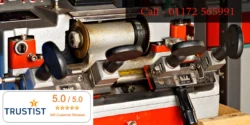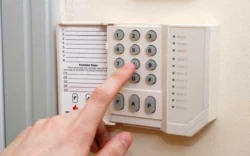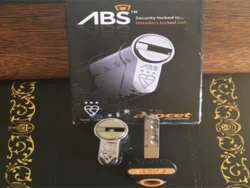With the nights closing in, statistical, the number of burglaries increases. Criminal’s use the cover of darkness to cover their devious intentions. Luckily, Andrew Marsh (Locksmith Brentwood), has issued his top ten home security tips to keep Brentwood locals safe this winter.
1. Install an Alarm with Motion Sensors
Home intruder alarms are very common but are often not set when owners leave their properties. It sounds basic, but once you are out of the habit of setting the alarm, it is tough to reverse the bad habit.
Sadly, most cheap alarms only come with motion sensors which only trigger the alarm when a burglar is in the property, which is too late.
However, fitting motion sensors will deter criminals before they gain entry. A motion sensor will trigger the alarm as soon as a door or window is tampered with. Be proactive rather than reactive.
2. Install High-Security Locks
UK homeowners are told by their home insurance policy to fit British Standard locks to their external doors. Why? Door locks with the British Standard Kite Mark have had to reach a higher security level than non-British Standard locks. They withstand common methods of attacks used by criminals, such as cylinder snapping.
If you are unsure if you have high-security locks, then find your nearest locksmith. Locksmiths often offer a free security check, so take advantage.
3. Lock your Doors and Windows
Just as obvious as the first tip – but lock your doors and windows. Criminals will often walk around trying front and rear doors and looking for open ground floor windows. So, do not make it easy for them by leaving them insecure, even if you are in the rear garden. A burglar will happily walk through your front door and help himself to your valuable whilst you are in the back garden.
4. Hide your Valuables
Valuables left in plain sight of a window or letterbox is an easy target for the local criminal—a particular issue for those that live in built-up urban areas. Phones, watches, wallets can fit through a letterbox, so keep them out of sight.
Depending on the monetary and or sentimental value of your possessions, it’s worth investing in a safe. Bolted to an external wall or a concrete floor make safes challenging to remove.
5. Stop Leaving your Keys in Sight of the Letterbox
Phishing is a technique used by burglars to take your door and or car keys from the hallway table or coat hook. Metal keys will stick to a magnet and fit through your letterbox.
There are two ways to stop this. Firstly, stop leaving your keys insight into a letterbox. Secondly, fit letterbox restrictors, which limits the opening of the letterbox.
6. External Lighting
Burglars use the cover of darkness to cover their intentions. If you were to install motion sensor lighting, it would remove their veil. Without the protection of the night, criminals are less likely to commit to the act.
Coupled with automated low-energy lighting, that turns on periodically, it will give the impression that the property is currently in use. Properties that feel as though they are in use are less likely to be targeted.
7. Remove any Signs that you are away on holiday
A property that is empty for two weeks, whilst the owners are away, is a burglar’s dream. Cancel your milk and newspaper delivery, so that they do not build up and alert the local criminals. It might be worth asking a trusted friend or neighbour to pop in periodically to move the mail and open and close the curtains.
Be very careful about what you post on social media – consider leaving uploading holidays snaps until after the holiday. Please avoid the ‘just off on our holiday and see you in 2 weeks’ post. The majority of social media users have left their post-security setting to public.
8. Garage and Garden Shed Security
Property owners often overlook both garage and garden shed security. Yet both usually contain high ticket items, that criminals love. For garages, it is worth installing a garage defender; a T bar fitted to the floor. It acts as a physical barrier, stopping the door from opening. A compelling visual deterrent but looks unsightly.
Just as useful but installed to the inside of the garage door, is garage deadbolts. When engaged, the deadbolts moves through the side of the garage door and into the frame.
Shed security requires two things. Firstly, replace the hinge screws with security bolts, stopping the hinges from being removed. Secondly, add a high-security padlock that defeats shimming.
9. Leave Property Security to the Professionals
As tempting as saving a few quid is, getting property security wrong will cost you dearly in the long run—both physically and more importantly emotionally. Homeowners who are a victim of crime feel insecure in their home afterwards. The money you saved on DIY will have to be spent on your insurance excess. Your insurance policy may not cover you if you have fitted the wrong type of locks.
So, when it comes to fitting security architecture to your property, please leave it to the professional locksmiths.
10. Check and service your Security Hardware
Intruder alarms require servicing annually. Motion sensors become loose, and insects get into parts and cause damage. Light bulbs in external lights will eventually blow and need replacing. So, it is worth doing an annual check, to make sure everything is working.
The British Standard for locks was last updated in 2007 and is due to change. Please keep an eye out for this as it will affect your home insurance policy.






